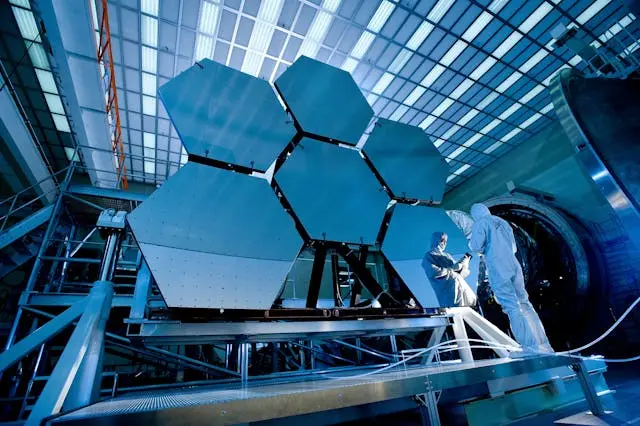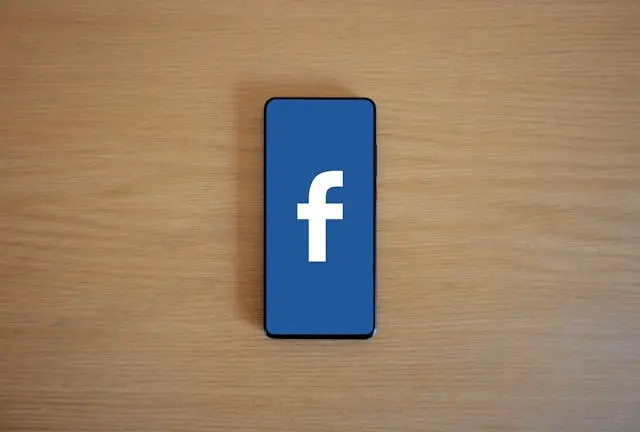In the ever-evolving landscape of the modern world, technology stands as a central force driving change, progress, and even challenges. From the first tools crafted by early humans to the complex, interconnected systems that define our digital age, technology has fundamentally transformed the way we live, work, and interact with the world. As we stand on the cusp of a new era marked by advancements like artificial intelligence (AI), biotechnology, and quantum computing, the future of technology promises even more profound changes. This article explores the role of technology in shaping our present and future, examining its impact on various sectors, the ethical implications of its use, and the exciting possibilities that lie ahead.
The Evolution of Technology

Technology, in its most basic form, refers to the use of scientific knowledge to create tools, machines, or systems that solve problems or improve our daily lives. The journey of technology began with simple stone tools used by early humans and has evolved into the high-tech, interconnected world we know today. Early technological advancements, such as the invention of the wheel, the discovery of fire, and the development of language, laid the foundation for all future innovations.
The agricultural revolution, which began around 10,000 years ago, marked one of the first major leaps in technology. By developing new farming techniques and tools, humans were able to transition from a nomadic lifestyle to settled communities. This allowed for the rise of cities, trade, and the development of complex societies. As human civilizations grew, so too did the complexity of technology. The invention of the printing press in the 15th century, for example, revolutionized communication and learning, making books and written knowledge more accessible to the masses.
In the 18th and 19th centuries, the Industrial Revolution brought about significant technological innovations that changed the landscape of manufacturing, transportation, and communication. The steam engine, the telegraph, and the mechanization of factories were pivotal in shaping the modern world. These advancements were only the beginning of a technological revolution that would continue to accelerate through the 20th and 21st centuries.
The 20th century witnessed the birth of the computer, the internet, and mobile technology, all of which would forever alter the way we communicate, process information, and engage with the world. The personal computer, which became ubiquitous in the 1980s and 1990s, laid the groundwork for the digital age. In the early 2000s, the advent of smartphones, powered by mobile operating systems like iOS and Android, put the power of computing in the palm of our hands, making technology more accessible and integrated into daily life than ever before.
The Impact of Technology on Society
The impact of technology on society is undeniable. From healthcare to education, from business to entertainment, technology has had a transformative effect on virtually every aspect of life. Let’s explore the various ways technology is shaping modern society.

1. Communication and Connectivity
One of the most profound impacts of technology has been on communication. The internet, social media, and mobile technology have revolutionized the way we connect with others. Social media platforms like Facebook, Twitter, and Instagram allow people to stay connected with friends and family across the globe, while messaging apps like WhatsApp and Telegram facilitate instant communication. Video conferencing tools like Zoom and Skype have made remote work and virtual meetings more accessible, especially in a world increasingly reliant on digital interactions.
Technology has also reshaped how businesses and organizations communicate internally. Cloud computing platforms, such as Google Drive and Microsoft OneDrive, allow teams to collaborate in real-time, share documents, and manage projects efficiently. This level of connectivity has opened up new opportunities for remote work, making it easier for people to work from anywhere in the world, breaking down traditional geographical barriers.
2. Healthcare and Biotechnology
Technology has had a profound impact on healthcare, improving patient outcomes, expanding access to medical care, and transforming the way treatments are developed. The use of digital health tools, such as wearable devices and mobile health apps, allows individuals to monitor their health in real time, tracking everything from heart rate to sleep patterns. These devices, along with advancements in telemedicine, have made healthcare more accessible, particularly in rural or underserved areas.
In biotechnology, the rapid development of gene-editing technologies like CRISPR has opened up new possibilities for treating genetic disorders and preventing diseases. Moreover, advances in artificial intelligence are transforming drug discovery, allowing researchers to analyze vast amounts of data and develop new therapies at an unprecedented pace. The future of healthcare is increasingly intertwined with technological advancements, promising to improve both the quality and accessibility of medical care worldwide.
3. Education and Learning
Technology has also revolutionized the education sector, providing new tools for learning, teaching, and collaboration. The rise of online education platforms like Coursera, Udemy, and Khan Academy has made learning more accessible to people around the world, regardless of their location or socio-economic status. These platforms offer a wide range of courses, from technical skills to the humanities, making it possible for anyone with an internet connection to pursue education.
In traditional classrooms, technology has introduced tools like interactive whiteboards, digital textbooks, and learning management systems (LMS) that make education more interactive and engaging. Virtual and augmented reality (VR/AR) have also emerged as powerful tools in education, providing immersive learning experiences that make complex concepts more tangible and accessible. As a result, technology is reshaping the educational experience, making it more personalized, accessible, and engaging.
4. Business and Economics
Technology has had a transformative effect on business and the global economy. Automation, artificial intelligence, and machine learning are revolutionizing industries by improving efficiency, reducing costs, and enhancing decision-making. In manufacturing, for example, robots and automated systems are replacing manual labor in many processes, leading to greater productivity and precision.
E-commerce has been one of the most visible impacts of technology on business. Online shopping platforms like Amazon, eBay, and Alibaba have transformed the retail landscape, making it possible for consumers to purchase products from anywhere in the world. E-commerce has not only changed how people shop but also how businesses operate, with digital marketing, data analytics, and customer relationship management (CRM) systems becoming essential tools for success.
Additionally, the rise of fintech (financial technology) has led to innovations in digital banking, online payments, and cryptocurrencies. Technologies like blockchain are paving the way for secure, decentralized financial systems, while mobile payment apps like PayPal and Venmo make it easier for individuals to transfer money instantly, without the need for physical banks or cash.
5. Entertainment and Media
Technology has transformed the entertainment industry, changing how content is produced, distributed, and consumed. Streaming services like Netflix, Spotify, and YouTube have made it easier than ever to access movies, TV shows, music, and videos from anywhere at any time. The shift from physical media (like DVDs and CDs) to digital formats has also disrupted traditional business models, with subscription-based streaming becoming the preferred method of consuming entertainment.
In gaming, the rise of virtual reality (VR) and augmented reality (AR) has introduced immersive experiences that blur the line between the digital and physical worlds. Online gaming communities have also thrived, with millions of people connecting to play games, stream content, and share experiences in virtual worlds.
Social media platforms have become a powerful tool for content creation and distribution, allowing influencers, creators, and brands to reach global audiences with ease. The democratization of media has led to a surge in user-generated content, with individuals becoming content producers and distributors on platforms like TikTok, YouTube, and Instagram.

The Ethical Implications of Technology
As technology continues to advance, it brings with it a range of ethical considerations. From privacy concerns to the impact on employment, the rapid pace of technological innovation raises important questions about how these technologies should be used and regulated.
1. Privacy and Data Security
The collection and use of personal data have become central to the functionality of many modern technologies, from social media platforms to e-commerce websites. While this data can be used to provide personalized experiences and improve services, it also raises significant privacy concerns. The question of who owns and controls personal data, as well as how it is protected, has become a pressing issue.
Data breaches, cyberattacks, and the unauthorized use of personal information are becoming more frequent, highlighting the need for stronger data protection laws and ethical standards for technology companies. As technologies like AI and facial recognition become more pervasive, ensuring that personal privacy is respected and safeguarded will be crucial.
2. Automation and Employment
The rise of automation, AI, and robotics has raised concerns about the future of work. As machines become more capable of performing tasks traditionally done by humans, many fear that large numbers of jobs will be lost, particularly in industries like manufacturing, transportation, and customer service. While automation can increase efficiency and reduce costs, it also poses challenges for workers who may struggle to adapt to new roles or face job displacement.
To address these challenges, there is growing support for policies that promote reskilling and upskilling, helping workers transition into new fields. Universal basic income (UBI) has also been proposed as a potential solution to ensure that individuals can continue to thrive even as automation changes the job market.
3. Artificial Intelligence and Ethics
The rise of artificial intelligence presents both exciting possibilities and significant ethical challenges. AI has the potential to revolutionize industries, from healthcare to finance, but it also raises questions about decision-making, accountability, and bias. AI algorithms are only as good as the data they are trained on, and biased data can result in biased outcomes, leading to unfair treatment of certain groups.
There is also concern about the potential for AI to be used for harmful purposes, such as surveillance, deepfakes, or autonomous weapons. As AI continues to develop, it will be essential to create ethical guidelines and regulations that ensure these technologies are used for the benefit of society and do not harm individuals or communities.
The Future of Technology
The future of technology is both exciting and uncertain. Emerging technologies like quantum computing, biotechnology, and AI have the potential to transform every aspect of our lives. As these technologies continue to develop, they will create new opportunities for innovation and problem-solving, while also presenting challenges that will require careful consideration.
In the coming years, we are likely to see further advancements in fields like renewable energy, space exploration, and healthcare, which will help address some of the world’s most pressing problems, such as climate change, disease, and poverty. At the same time, the ethical implications of these technologies will continue to be a critical conversation, as we strive to balance innovation with responsibility.
Ultimately, the direction of technology will depend on how society chooses to harness it. If used thoughtfully and ethically, technology can continue to be a force for good, improving lives and solving complex challenges. The future of technology is in our hands, and it is up to us to ensure that it serves humanity in the most positive and impactful way possible.
Conclusion
Technology is one of the most powerful forces shaping the future of humanity. From its early beginnings with simple tools to the cutting-edge innovations of today, technology has transformed every aspect of our lives. Its impact on communication, healthcare, business, entertainment, and education is profound, and its potential to solve global challenges is immense. However, with great power comes great responsibility. As technology continues to advance, it is essential to consider its ethical implications and ensure that it is used in ways that benefit society as a whole. The future of technology holds endless possibilities, and it is up to us to guide its development toward a more inclusive, sustainable, and equitable world.









